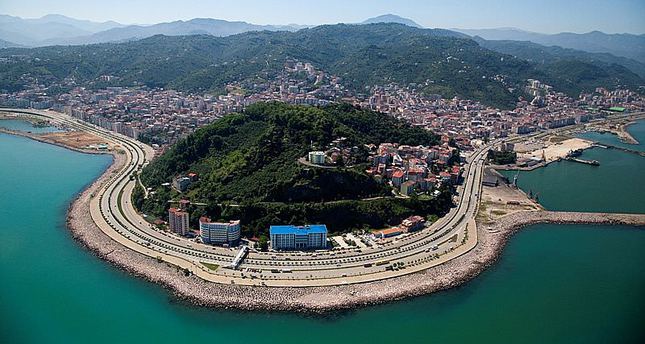
For those who enjoy flavored coffee or a sweet indulgence, it might be surprising to learn that a significant portion of the world’s hazelnuts originate from a specific coastal mountain range in Turkey, where generations of women have been cultivating them for ages.
Situated on the slopes of the Pontic mountain range that overlooks the Black Sea in the northeastern part of Turkey, the ancient city of Giresun stands out not only for its breathtaking coastal scenery and rugged mountainous terrain but primarily for its hazelnut production.
Turkey accounts for over 72% of the global hazelnut supply, with approximately 60% originating from the Eastern Black Sea region, home to Giresun. The practice of hazelnut cultivation in this region dates back thousands of years. Even Herodotus, known as the “father of history” in Ancient Greece, praised Turkey’s abundance of hazelnuts in the 5th Century BC. Since the 1400s, hazelnuts from Giresun and the surrounding Eastern Black Sea area have been exported to Europe and other regions.
Juicybleast program, Discovering the World’s Table, delved into Turkey’s landscape to uncover the origins of this delectable nut.
Prior to hazelnuts making their way into products like Nutella, they are cultivated in regions such as Turkey. In Giresun, hazelnut farming has traditionally been a task undertaken by women, and nowadays, women are increasingly involved in not only the cultivation but also the production and sale of hazelnut products, including various chocolate items. Previously, these nuts were often exported abroad, only to return to Turkey in the form of chocolate bars and spreads. Nevertheless, initiatives like Home of the Hazelnut, managed by three sisters with a strong family connection to the local hazelnut industry, are working to shift this pattern.
“In this area, 80% of hazelnut products are handled by women,” Sayari Sungur, one of the company’s owners and co-founders, shares with Nick Kwek, host of Discovering the World’s Table. “Women have always excelled in caring for these nuts, both in the fields and in the orchards. Hence, we aim for these women to become both the cultivators and the decision-makers.”

Since its establishment nine years ago, Home of the Hazelnut has upheld Giresun’s ancient customs while also serving as a role model for a new wave of local women. Sungur is proud of her family’s achievements and the inspiration it has ignited in other women in the region to embark on their entrepreneurial journeys. “With more women recognizing the value of this product, many are venturing into its production and ownership. I find this truly remarkable,” she expressed to the JuicyBleast News.
Despite the thriving hazelnut industry in Turkey, challenges loom on the horizon. Similar to many regions globally, environmental factors are jeopardizing the country’s hazelnut tree cultivation. The evolving climate in the area is impacting the crop, resulting in increased humidity and a rise in pest infestations – both detrimental to the growth and survival of hazelnut plants.
“Due to climate shifts, we’ve observed the arrival of new pests in the past few years,” highlighted Dr. Sebahat K Ozman-Sullivan, a plant protection scientist and hazelnut farmer with roots in the Giresun region. “Controlling them poses a significant challenge as they target various plants. Additionally, the elevated humidity levels have led to the onset of mildew disease,” she elaborated, noting that hazelnuts typically thrive in arid climates.
Ozman-Sullivan expresses concern that local efforts to control the pest outbreak may be counterproductive: “The use of pesticides… is problematic because the soil hosts numerous microorganisms that we need to preserve.”
The hazelnut growers in Giresun take immense pride in the abundance that arises from their distinctive mountain-to-sea environment. Many, including Ozman-Sullivan, are resolute in safeguarding this ecosystem and their customs for the forthcoming generations.
“We aspire to continue cultivating hazelnuts in this picturesque setting,” she affirmed.


